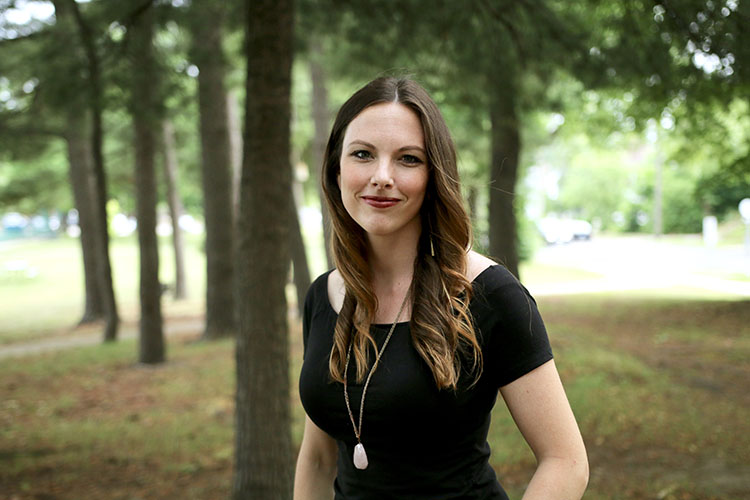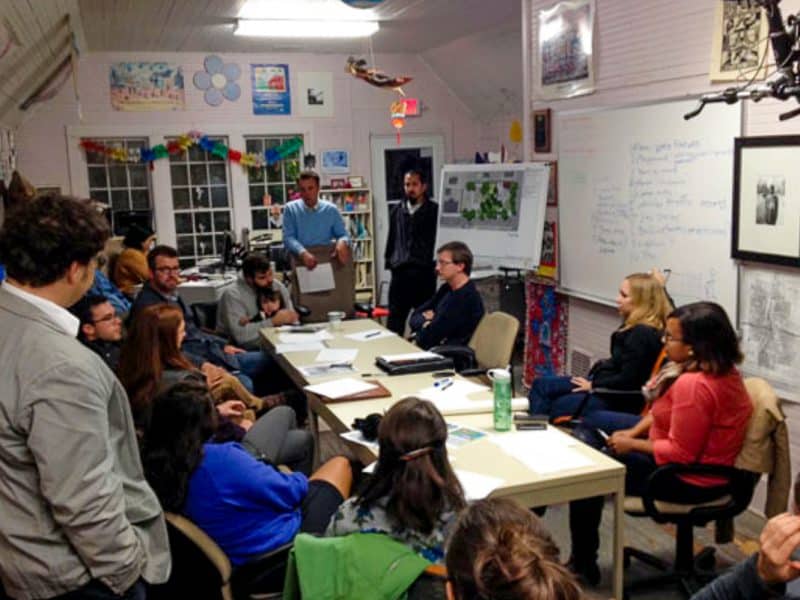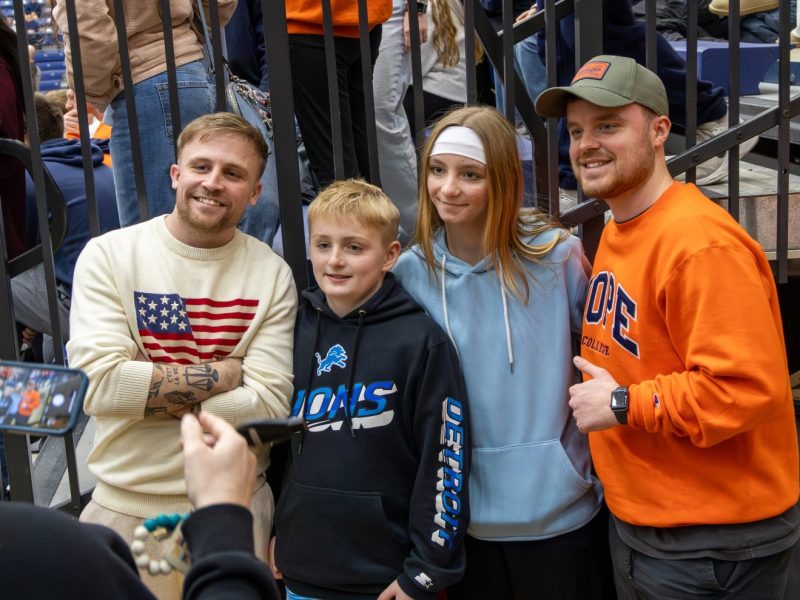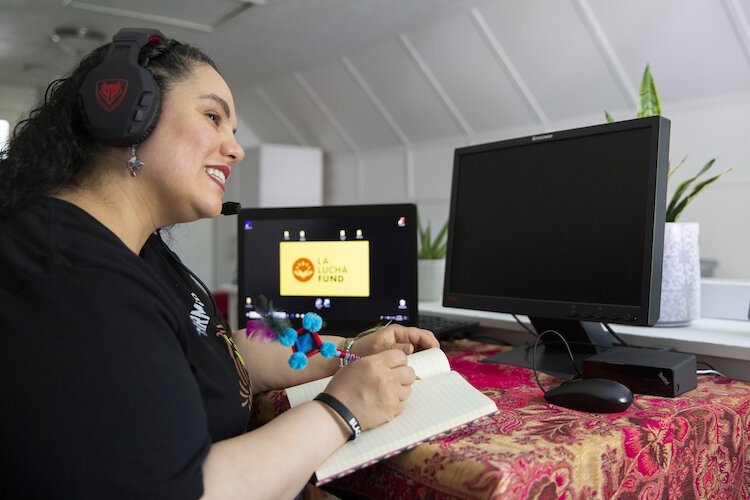RapidChat: Lauren Rahman Thompson on World Refugee Day, Treetops Collective, and more.
"It’s easy to forget 'refugee' is only a status, not an identity," states Lauren Rahman Thompson, Director of Operations at Treetops Collective. It's time to be more aware, get educated, and take action beyond World Refugee Day on June 20th.

"It’s easy to forget “refugee” is only a status, not an identity," states Lauren Rahman Thompson, Director of Operations at Treetops Collective. It's time to be more aware, get educated, and take action beyond World Refugee Day on June 20th.
Rapid Growth: Why is World Refugee Day so important?
Lauren Rahman Thompson: Right now is the highest number in recorded history of individuals and families who are displaced from their homes because of violence, war, and persecution. It’s truly a crisis. For people who aren’t immediately and directly affected, it’s easy to miss or dismiss this reality in the midst of life and a busy news cycle.
World Refugee Day is a timely opportunity for people to become aware, get educated, and hopefully decide to continue caring and take action even after June 20.
RG: How did you get your start with Treetops Collective?
LRT: I’d worked for an international economic development organization in the past and after a couple years at a local creative agency I had the opportunity to join Treetops. I thrive in and really love helping young organizations and businesses create a vision for the future and build something unique and important. Treetops’ values really resonated with me and their mission and model has incredible potential, so I really wanted to spend time helping them grow.
RG: How does the Treetops Collective model work?
LRT: Everything we do is focused on discovering exactly what a new refugee neighbor needs in order to thrive rather than just survive here, then helping connect her with people and opportunities.
Our main program is called Sister Circles because we connect local women with refugee women and girls in partnerships, then support those growing friendships. Everyone leans on their social network for connections to jobs, education, creative outlets, many things—this program recognizes that and helps refugee families rebuild the social networks they were forced to leave behind.
We’re currently developing the next iteration of our program based on feedback we’ve gotten from all the participants and researching some new ways we can be good neighbors.
RG: Can you tell me a bit about your artist space?
LRT: Our makerspace is where we create most of the hand-crafted products we sell to fund our work, all made by talented refugees or designed to help raise awareness.
It’s also where we host creative gatherings for our Sister Circles community, pop-up shops with local creatives, feedback sessions with refugee community members, community events like baby showers, and public events for other organizations.
The rest of our space on Division is open for co-working and is currently shared with Public Thread, a cut and sew company that ethically re-purposes materials, as well as trauma therapists who work with individuals who’ve come to Grand Rapids as refugees.
RG: Why is it so important for our government to act with solidarity and shared responsibility on this?
LRT: We’re all connected to each other, by sharing the earth and human experience, especially in a more and more connected world. No country is completely immune to the ripple effects of tragedies, even those halfway across the world.
In a globalized economy, where isolationism leads to economic damage, working well together and building goodwill with other countries is incredibly important for any country to thrive. But outside of self-interest, I believe that aiding in the care of displaced people and opening our doors to them is a matter of being an ethical and compassionate nation.
RG: What are some common misunderstandings people have about refugees?
LRT: Many people simply don’t know who refugees are. It’s easy to forget “refugee” is only a status, not an identity. These are people with families, homes, businesses, communities, talents, and dreams—all of which they were forced to leave behind to stay alive. Some people imagine that refugees are fleeing circumstances that aren’t that bad. But no one leaves everything they’ve ever known unless staying means they and their families will most likely die.
Many people are also uneducated or miseducated about the refugee experience or resettlement process. Refugee camps are not permanent solutions; they are temporary, often under-resourced, and not always completely safe from violence. The resettlement process is very long, with incredibly thorough vetting and only people in the most vulnerable situations are selected. Less than 1 percent of recognized refugees are ever resettled, and refugee status is given to less than half of forcibly displaced people.
I hope that more people stop relying on unverified information and become willing to say “I don’t know,” then listen and learn.
I think people sometimes feel threatened by refugees because of the unknown. It’s hard to embrace people and cultures you don’t understand. It can feel like too much change and a loss of control. There’s also a lot of misinformation that is created by people who embrace that fear and want to convince others to be afraid also, or by leaders whose motive is to maintain their power.
RG: What can the average person do to help assist refugees around the world?
LRT: As people privileged enough to live in a democratic country, we can ensure our leaders act with compassion towards all people regardless of circumstance, nationality, race, or socioeconomic status. Anyone can get involved in the political process—write or call representatives, show up to community meetings—be a voice for people who need our policies to be supportive of them in their plight and welcoming them to a new home.
You can give to organizations that are aiding refugees still in camps, and support local organizations working to help refugee families thrive once resettled. You can become a foster parent to a refugee child, or helpful friends to a refugee family in your neighborhood. By getting involved in welcoming new Americans, you will learn the reality of their stories and be able to speak truth to educate others. But first and most importantly, you will be changed as a person.
RG: What is one of your favorite success stories?
LRT: One of the women in our collective was not literate in her first language, yet having been resettled here, was working to learn English as a second language. A local woman partnered with her, developed a friendship, practiced English, and got to know this woman’s entire family. Over the course of their partnership, not only can she now speak small phrases of English, but she can write English letters, and for the first time is able to write her own name.
It took patience and grace, the qualities of true friendship, but both women have learned so much from each other about culture, language, and life.
Jenna Morton is the RapidChat correspondent for Rapid Growth Media.








